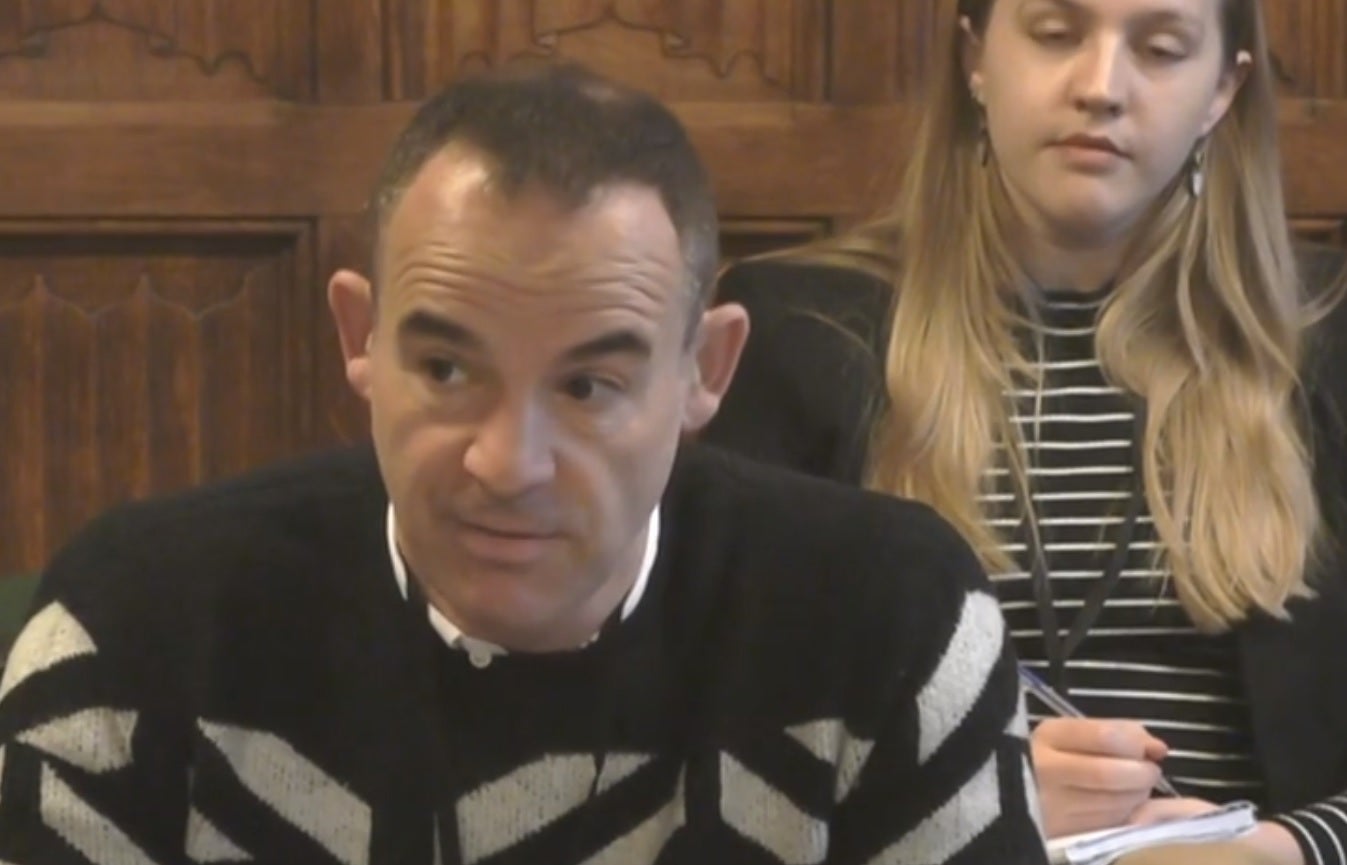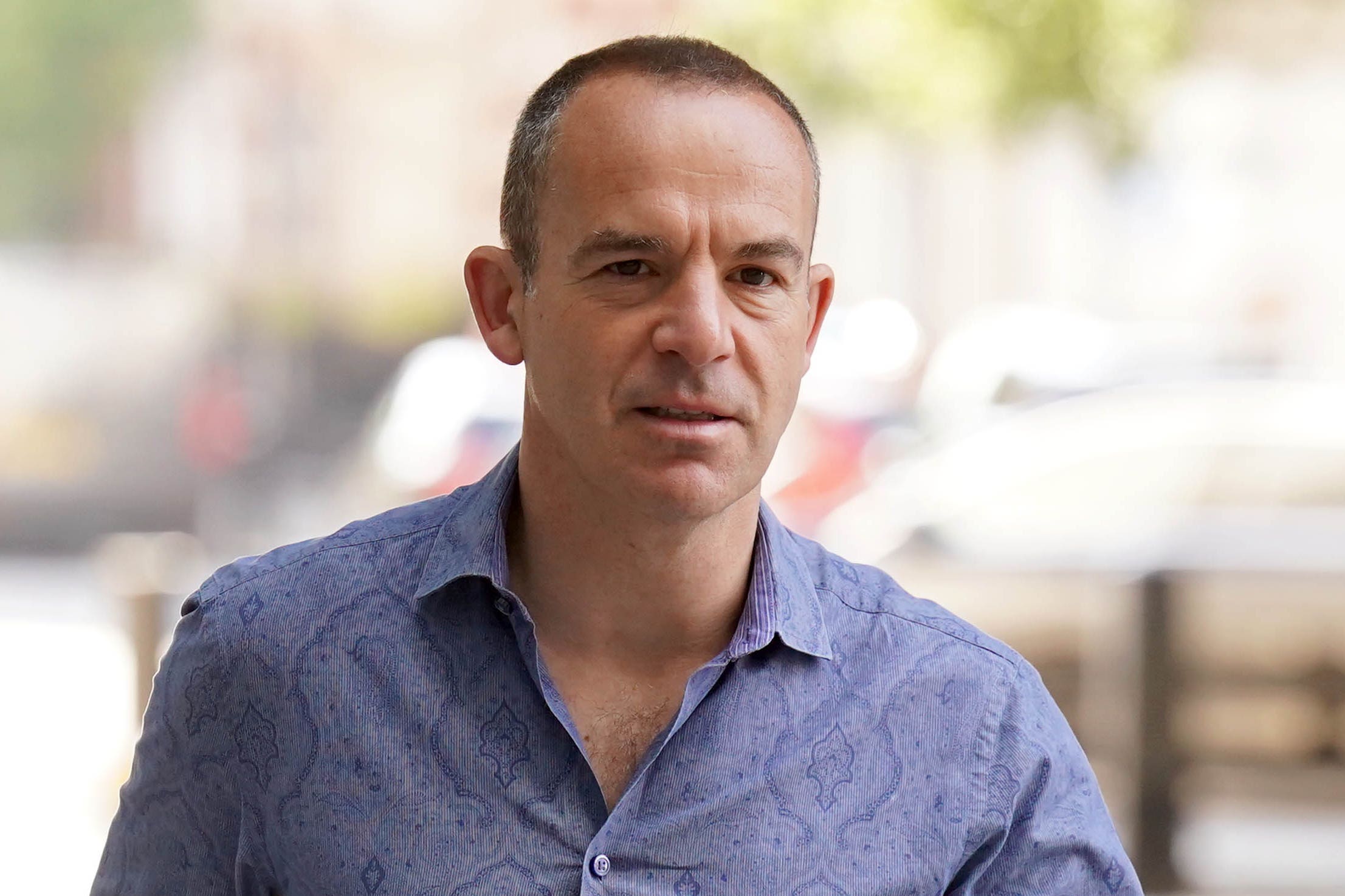Martin Lewis slams government’s ‘failure’ to fund money textbook
The Money Saving Expert founder lamented the state of financial education in the UK and called for more teachers and resources to improve standards
Your support helps us to tell the story
From reproductive rights to climate change to Big Tech, The Independent is on the ground when the story is developing. Whether it's investigating the financials of Elon Musk's pro-Trump PAC or producing our latest documentary, 'The A Word', which shines a light on the American women fighting for reproductive rights, we know how important it is to parse out the facts from the messaging.
At such a critical moment in US history, we need reporters on the ground. Your donation allows us to keep sending journalists to speak to both sides of the story.
The Independent is trusted by Americans across the entire political spectrum. And unlike many other quality news outlets, we choose not to lock Americans out of our reporting and analysis with paywalls. We believe quality journalism should be available to everyone, paid for by those who can afford it.
Your support makes all the difference.Martin Lewis has accused the government of a “political failure” after claiming ministers refused to pay for the publication of a textbook to improve students’ financial education.
The Money Saving Expert founder said he used £325,000 of his own cash to pay for the Your Money Matters book after being told the education department would not stump up the funds.
Mr Lewis, who now presents a TV show advising people on how to manage their finances, was giving evidence to the Commons education committee on the state of financial education in the UK.
The national curriculum was updated in 2014 to include more elements of financial literacy, particularly in maths, following a successful campaign spearheaded by Mr Lewis.
Just a few years later, Mr Lewis said, no public funds had been made available to aid learning. Mr Lewis said he held meetings with the then education secretary Nick Gibb about the need for a textbook in classrooms to boost learning.
But Mr Lewis said he was told by Mr Gibb that the state would not pay for the book, and that he should consider covering the costs himself.
“I funded this textbook because the state wouldn’t and told me it had to be paid for by an individual,” he told MPs.
“That is a political failing - I could have put bias into this book.”

Your Money Matters, the first ever financial education textbook, was later published and physical copies have been delivered to schools across the UK following a £325,000 donation by Mr Lewis.
English schools received 340,000 copies, 15,450 copies have been delivered to schools in Northern Ireland, while 27,000 copies have gone to schools in Scotland, and over 16,500 copies have been delivered to schools in Wales.
In his evidence, Mr Lewis lamented the progress that has been made since the curriculum was beefed up as he called for more teachers to be trained and more resources to be made available, which he said would help improve the employment prospects of young people.
He also described getting financial education onto the curriculum as a “pyrrhic victory” that was in some ways “counterproductive”.

Last month, a survey from the Money and Pensions Service suggested that more than three in four teachers believed most pupils left school without the key financial skills needed.
An overwhelming majority of teachers in the UK thought children should be taught about money before they started secondary school, according to a poll by the government-backed body.
Schools minister Damian Hinds, who also gave evidence to MPs on the committee on Tuesday as part of its inquiry into financial education, thanked Mr Lewis for funding the financial education textbook for school pupils.
When asked whether the government would expand financial education in primary schools to reach younger children, Mr Hinds said: “There is the non-statutory national curriculum content in citizenship, and there is the explicitly financial aspects of mathematics in infant school, as well as in juniors.”
The minister said he was “content” with the maths curriculum but added that there was a “further opportunity” to simplify the process for teachers looking for the best resources for the subject.
Mr Hinds said: “I want there to be more financial education. I would like for kids to say they had remembered it and had found it useful.”
Ministers did not deny Mr Lewis’s claim.
A government spokesperson said: “High quality financial education is key to making sure young people have the knowledge and financial skills to make important decisions later in life.
“Financial literacy within citizenship is compulsory for 11-16-year-olds in the national curriculum, so young people are taught about the importance of personal budgeting, savings, money management and calculating interest.
“Being financially literate relies on a solid understanding of maths and we have reformed the curriculum and invested substantially over £100 million in the Maths Hubs programme. The Advanced British Standard will see all young people study maths and English to 18, giving them the essential skills they need to succeed.”

Join our commenting forum
Join thought-provoking conversations, follow other Independent readers and see their replies
Comments